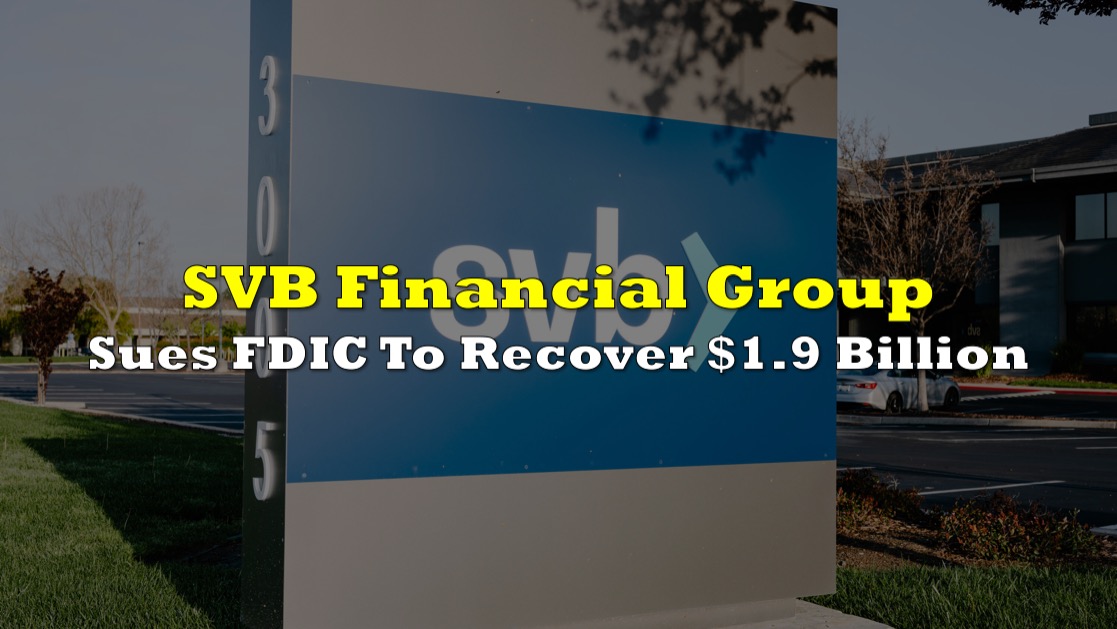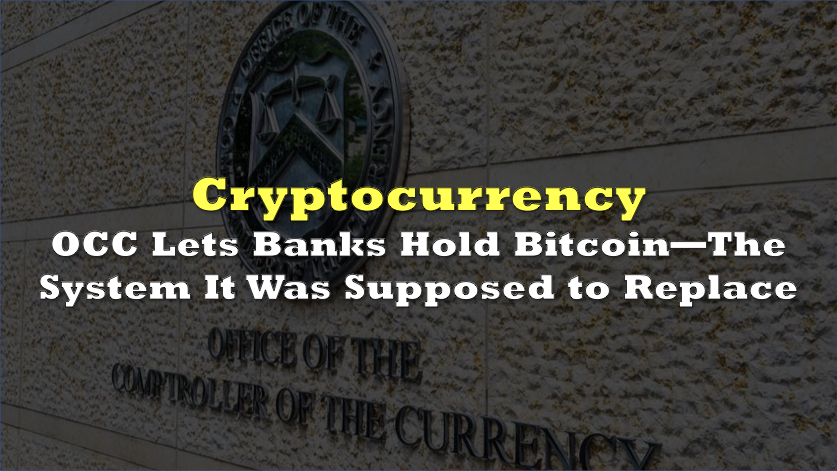The US Federal Deposit Insurance Corporation (FDIC) has been sued by SVB Financial Group in an effort to recoup $1.9 billion in funds that the regulator has held onto since taking over the group’s banking unit in March.
Parent holding company SVB Financial Group declared bankruptcy in March after Silicon Valley Bank was taken over by the FDIC as a result of a $42 billion bank run. According to SVB Financial, the FDIC’s holding of the cash was against US bankruptcy law.
Bonds and preferred stock issued by the holding company with a face value of $7 billion are currently mostly held by investors in distressed assets. Since the first bankruptcy court hearing, when one lawyer for SVB Financial claimed that the FDIC had “drained” the $1.9 billion in cash, ownership of the money has been a major point of contention.
The case submitted on Sunday night in a New York federal bankruptcy court describes the cash balance, which is kept in an account at its banking subsidiary, as “the most significant asset” of the SVB Financial estate. SVB Financial stated that if the FDIC did not return the monies, it could be required to seek outside funding to pay for the litigation, a process it described as potentially “costly and uncertain”.
“The Debtor’s lack of access to these Account Funds is impeding its ability to reorganize, and causing harm to the Debtor on a continuous basis,” the bank said in its lawsuit.
SVB Financial claimed that because they couldn’t access the funds, they were having trouble restructuring. They stated that the funds ought to have produced interest income of more than $100 million annually. Without it, they could need to come up with an alternative, pricey, and unreliable method of borrowing money for their goals.
The FDIC can legally hold the seized funds until it calculates SVB Financial’s portion of the rescue costs. The regulator estimates that the failure of Silicon Valley Bank depleted its insurance fund by $16 billion.
SVB Financial claimed that the parent firm was entitled to access its funds on deposit at the seized banking subsidiary after the US Treasury department utilized the alleged systemic risk exception to make it legal for the FDIC to cover deposits higher than $100,000.
In prior court appearances and court documents, the FDIC contended that it might have “offset rights” to take money from the parent business to pay for future liabilities. SVB Financial claimed it was still unsure of the legal bases on which the FDIC may claim such rights.
Who gets to keep the money in the interim is in dispute between the two parties, and each must make a claim for the money that it believes should be returned to it.
SVB Financial reported last month that it had reached an agreement to sell its securities and investment banking operations to a buyout company headed by one of its investment bankers, Jeffrey Leerink, for an estimated $80 million.
A bankruptcy judge ruled in May that the FDIC had to return $10 million to SVB Financial. The funds were withdrawn by the FDIC from tax return checks. The FDIC was attempting to recoup the funds it had used to save Silicon Valley Bank when this occurred.
Information for this briefing was found via Financial Times, RichTV, and the sources mentioned. The author has no securities or affiliations related to this organization. Not a recommendation to buy or sell. Always do additional research and consult a professional before purchasing a security. The author holds no licenses.









